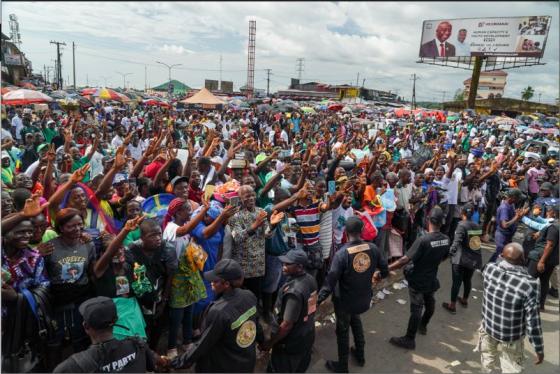Political Forecast for Liberia from 2024-2029

By Lassana M. Dorley, II
Former Representative Candidate, District #3, Bomi County
In January 2024, the Republic of Liberia is poised for the inauguration of President-elect Joseph Nyumah Boakai and Vice President-elect Jeremiah Kpan Koung, marking a pivotal moment accompanied by high expectations from the Liberian people. The prevailing optimism is underscored by the anticipation of swift and effective solutions to address pressing issues.
Central to the public’s expectations is the desire for a reduction in the price of essential commodities, such as a bag of rice, with the hope that it will revert to its previous price of US$12. Additionally, there is a collective aspiration for a decrease in the cost of gasoline to L$540. The populace also looks forward to salary increments and the effective removal of illegal drugs from the market. Liberians are expecting all these to be resolved in six months.
However, the feasibility of these aspirations is questioned, given the historical reliance on propaganda and unfulfilled promises in Liberian political campaigns.
Acknowledging the historical impatience of the Liberian people, there is a realization that unmet expectations within the initial 90 days of an administration may lead to disillusionment and a surge in discontent, reminiscent of sentiments expressed during the previous administration under President Weah.
Inevitably, comparisons with the preceding government will emerge, with statements like "Weah government was better" gaining traction. The political landscape may witness shifts, exemplified by figures such as Mr. Martin K. N. Kollie, known for changing allegiances, aligning with opposition forces. This time, it will be against Amb. Joseph Nyumah Boakai and the Unity Party.
A notable figure in this forecast is Mr. Henry P. Costa, whose return to prominence is predicted. Viewed as a hero by some for standing against perceived oppression by the Unity Party, Mr. Costa's resurgence may contribute to a challenging political situation for Sen. Darius Dillon in the 2029 senatorial election. After the Unity Party fail to meet the expectation of the Liberian people, Sen. Dillon's political choices could be viewed skeptically, whether he supports the Unity Party or distances himself from it, impacting his future political prospects. If he continues to support the Unity Party, he will be perceived as a corrupt regime collaborator after several damaging podcasts from Mr. Costa. If he disembarks, he will be seen as an unstable politician.
Looking ahead to 2029, a political showdown between Henry P. Costa and Darius Dillon is envisioned for the Senate. The votes will be in favor of Mr. Costa who will be speaking for the Liberian populace at that time.
The Nimba factor will not help Jeremiah Koung when the anger of the Liberian people is against the Unity Party. The electoral dynamics may shift, leading to a reevaluation of political influences in the country.
Another Key figure to look at is Sen. Edwin Melvin Snowe of Bomi County. His presidential ambition is dead upon arrival as he has lost control of Bomi County altogether. All those supported during the 2023 elections by Sen. Snowe including three representative candidates and a senatorial candidate lost in Bomi County. With then Ex-President Weah coming back in 2029, the likes of Sen. Snowe and Mr. Cummings are not counted.
Liberia is transitioning to a two-party state. It was clearly demonstrated during this election telescoping the legislative results.
Lastly, as the Unity Party assumes power, transitioning from opposition to the ruling party, the political landscape is poised for change. Lessons learned by CDC from UP during their time of opposition will be fully activated. The Unity Party should be as tolerant as the CDC was, because they will leave no opposition trick untouched.
